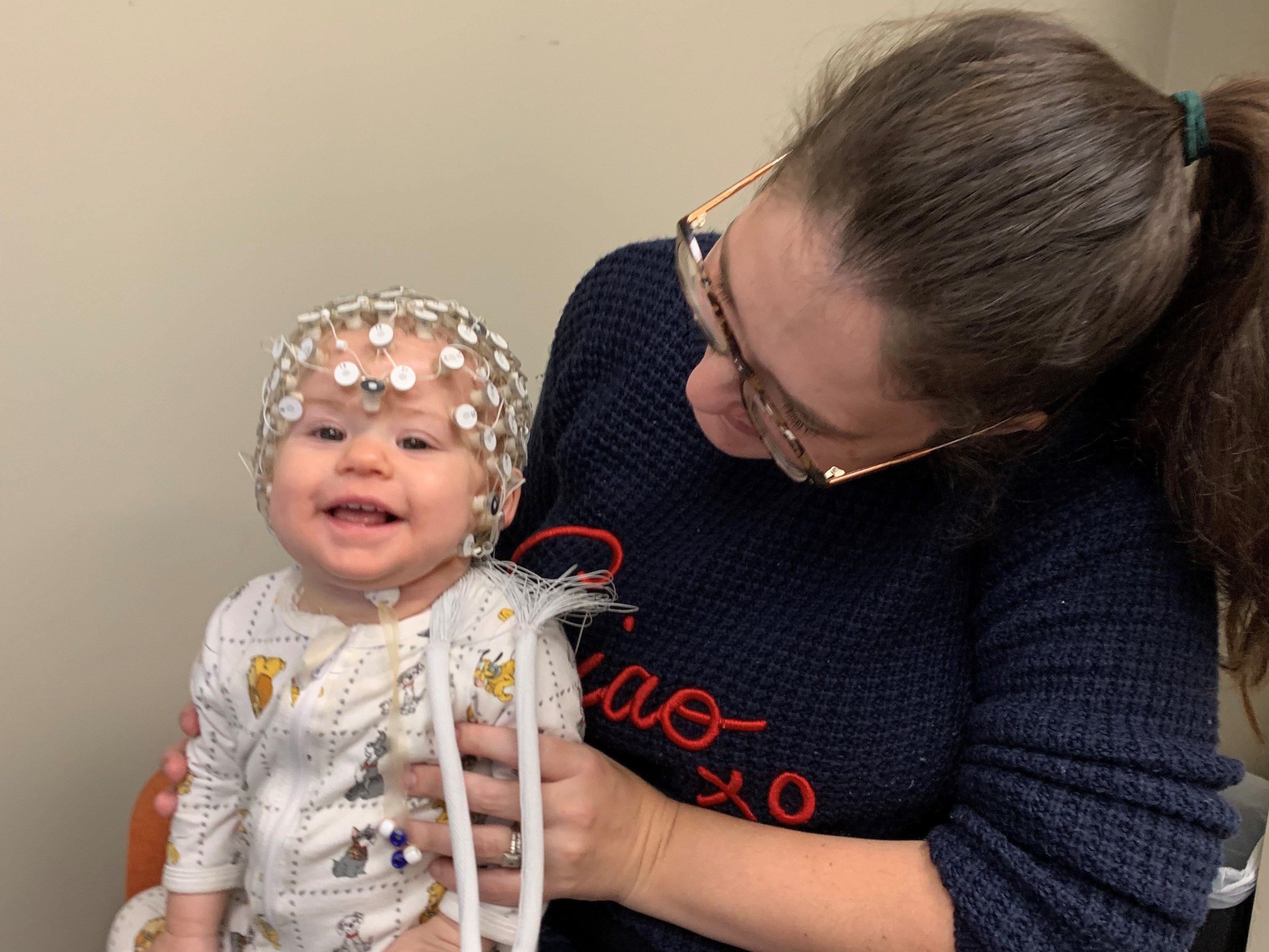Search

News & Events
How much is the right amount of therapy?In this blog, CliniKids Director Professor Andrew Whitehouse and Research Development Manager Sarah Pillar explore one of the most common questions when it comes to support for autistic children - how much is the right amount of therapy?
Our research covers a broad range of areas from the influence of mutation type on health outcomes to factors impacting on the lives of familes.
Research
Caregiver-mediated interventions to support self-regulation among infants and young children (0-5 years): A protocol for a realist reviewSelf-regulation is a modifiable protective factor for lifespan mental and physical health outcomes. Early caregiver-mediated interventions to promote infant and child regulatory outcomes prevent long-term developmental, emotional and behavioural difficulties and improve outcomes such as school readiness, educational achievement and economic success. To harness the population health promise of these programmes, there is a need for more nuanced understanding of the impact of these interventions.

The Healing Kids, Healing Families team at The Kids Research Institute Australia strives to improve child and family mental health and wellbeing, especially after experiencing trauma or adversity.

Brain and behaviour research encompasses a child's learning, development and mental health - and the impact and development of conditions like cerebral palsy, autism and intellectual disability.
Research
Global Scales for Early Development: Piloting the Family Check Up ProgramEvery year, over 80,000 Western Australian children will have a diagnosed mental health disorder.
Research
The Investigation of Health-Related Topics on TikTok: A Descriptive Study ProtocolThe social media application TikTok allows users to view and upload short-form videos. Recent evidence suggests it has significant potential for both industry and health promoters to influence public health behaviours. This protocol describes a standardised, replicable process for investigations that can be tailored to various areas of research interest, allowing comparison of content and features across public health topics.
Research
Associations between the human immune system and gut microbiome with neurodevelopment in the first 5 years of life: A systematic scoping reviewThe aim of this review was to map the literature assessing associations between maternal or infant immune or gut microbiome biomarkers and child neurodevelopmental outcomes within the first 5 years of life. We conducted a PRISMA-ScR compliant review of peer-reviewed, English-language journal articles.
Publications from 2016 dating back to 1993 of AussieRett researchers, showing the research work into Rett syndrome and related disorders.

Learn about those behind the LiLO research study
Research
Epigenome-wide meta-analysis of blood DNA methylation in newborns and children identifies numerous loci related to gestational ageWe identified numerous CpGs differentially methylated in relation to gestational age at birth that appear to reflect fetal developmental processes across tissues
Research
Murine cytomegalovirus infection exacerbates complex IV deficiency in a model of mitochondrial diseaseWe report for the first time that a common stress condition, such as viral infection, can exacerbate mitochondrial dysfunction in a genetic model of mitochondrial disease
Research
Predicting Long-Term Survival Without Major Disability for Infants Born PretermApgar score, birth weight, sex, socioeconomic status, and maternal ethnicity, in addition to gestational age, have pronounced impacts on disability-free survival.
Research
Fetal alcohol spectrum disorder: the importance of assessment, diagnosis and support in the Australian justice contextThe current article outlines how individuals with fetal alcohol spectrum disorder may experience inequities within the justice system
